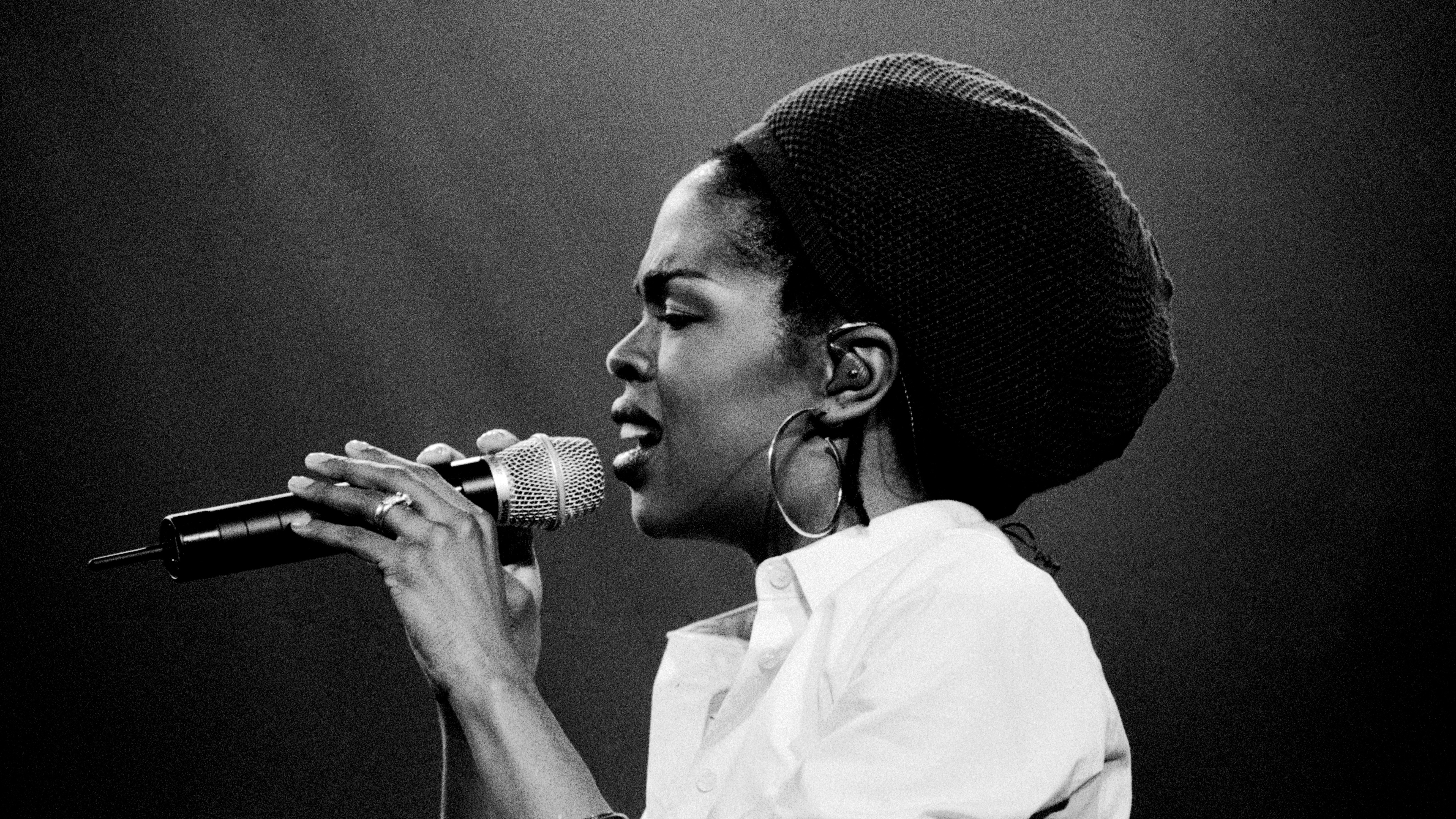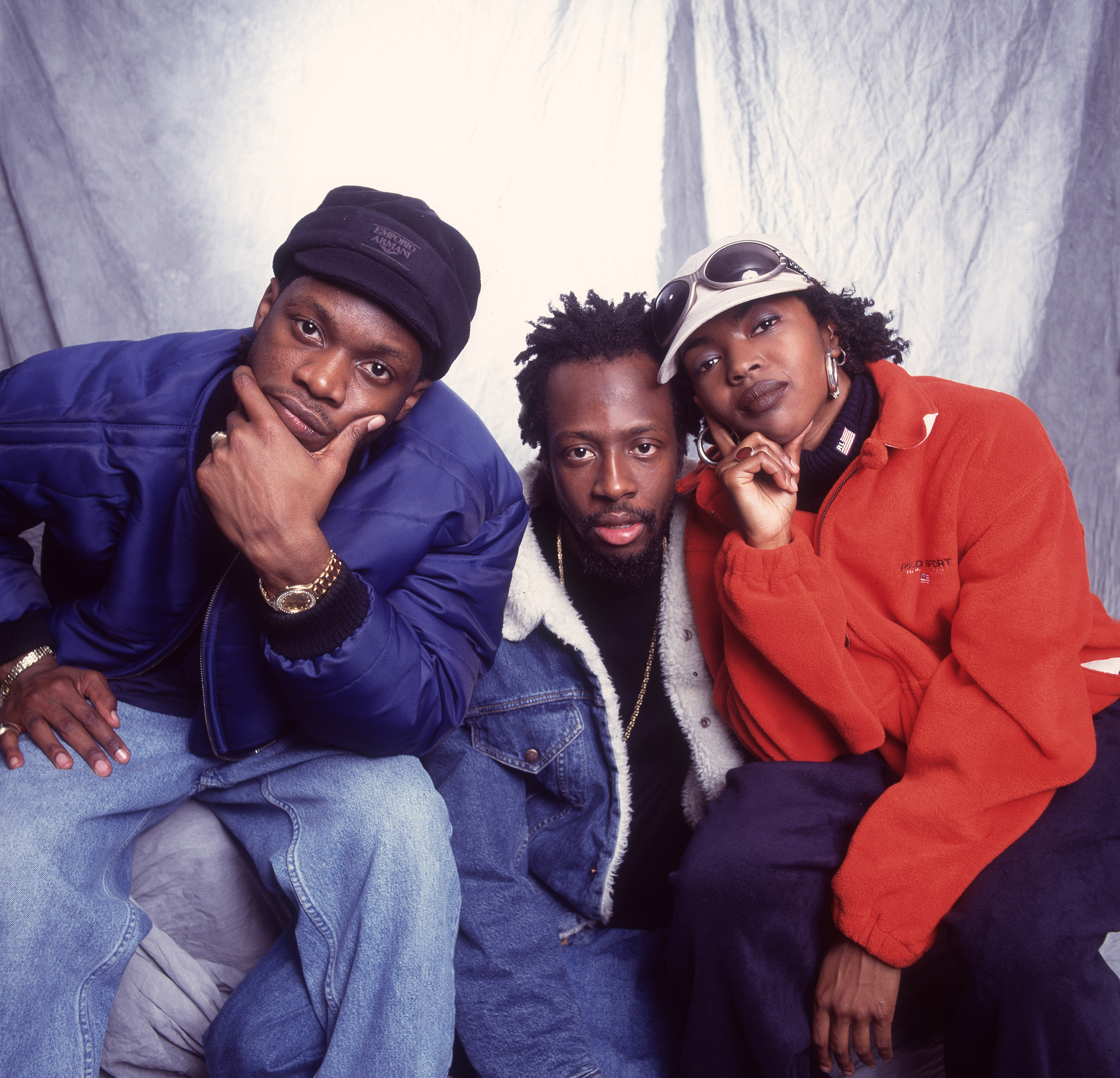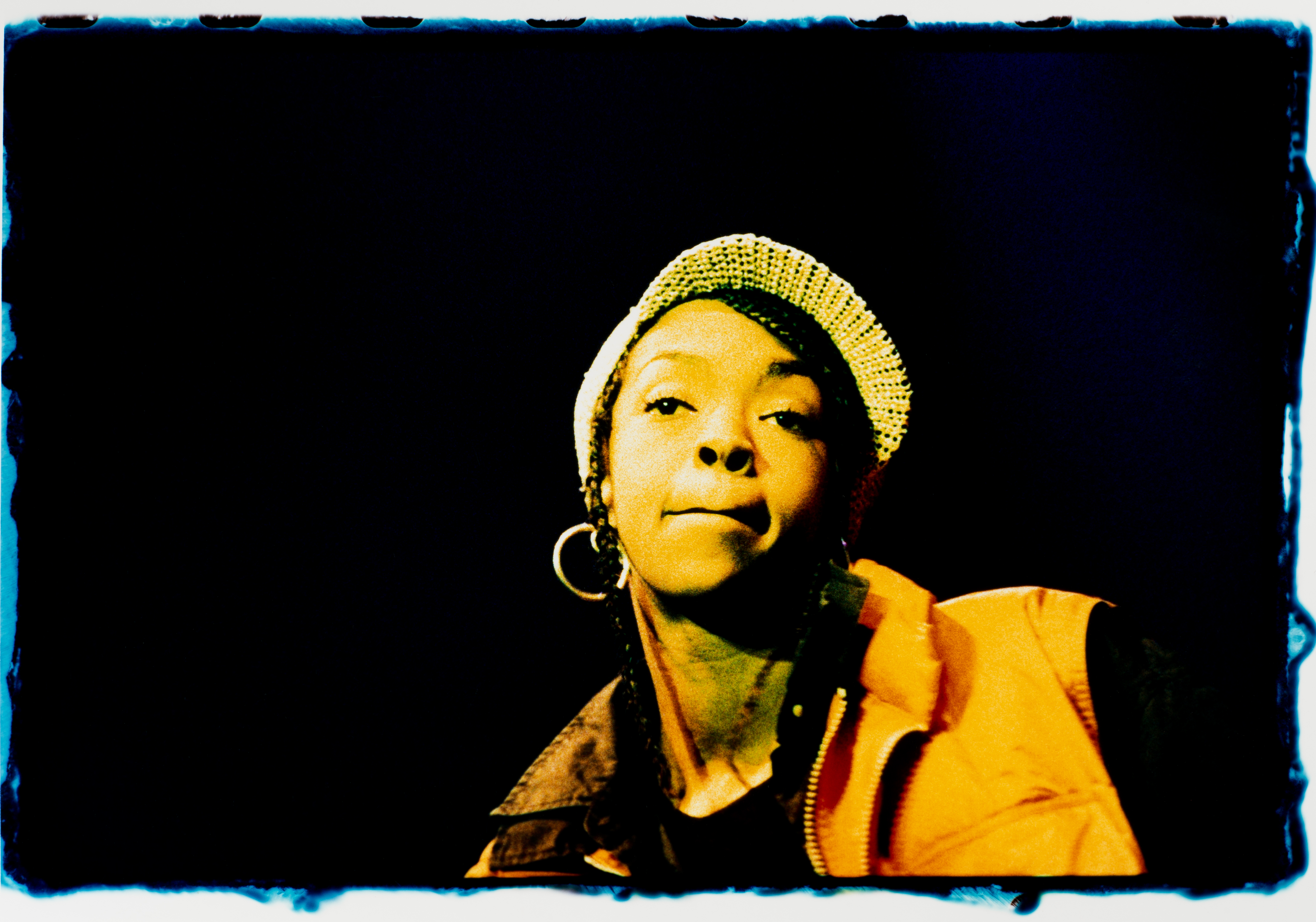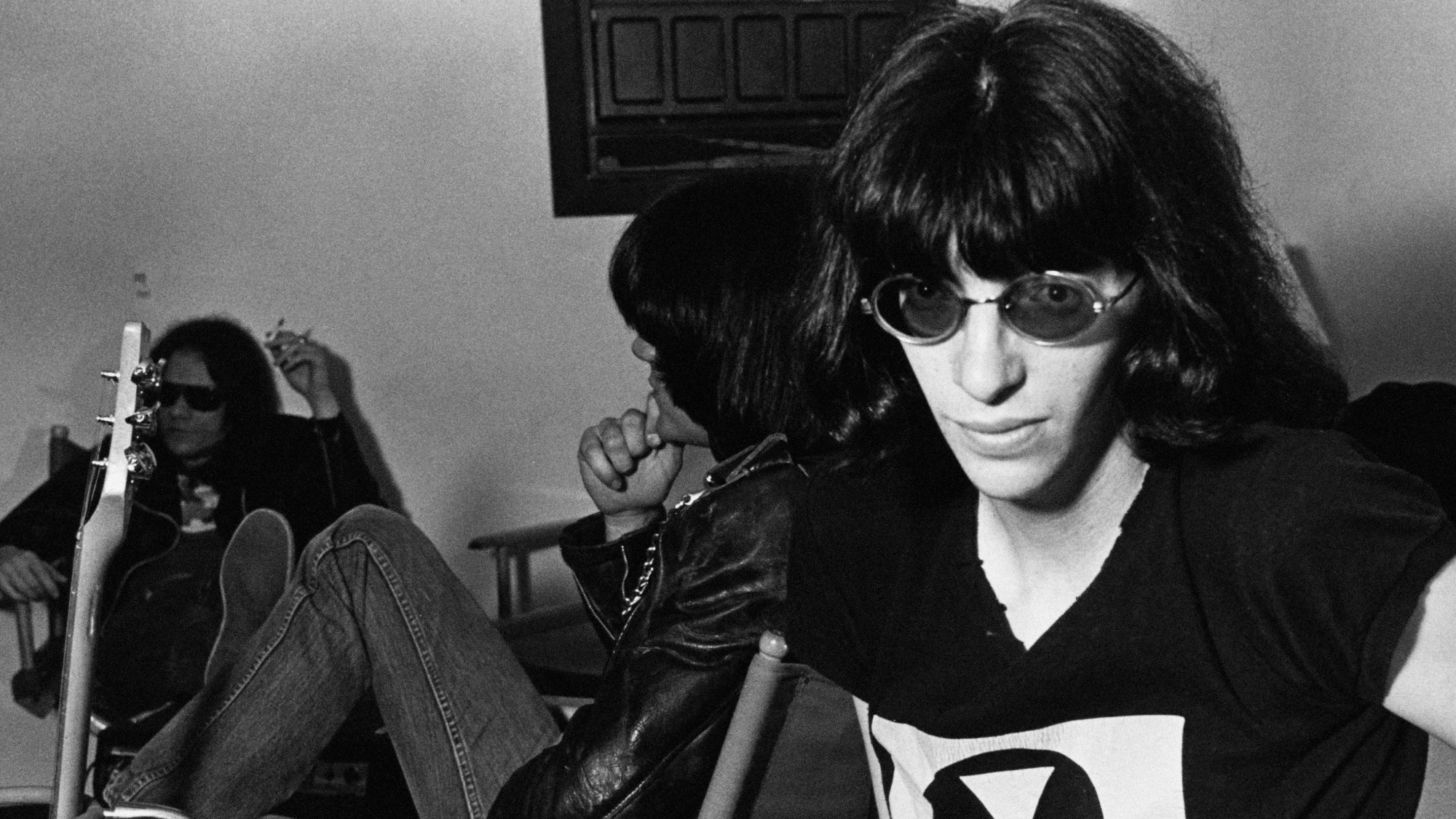"God bless Mr Rupert Neve - there wouldn't be a Miseducation without him!": The making of The Miseducation of Lauryn Hill, Apple Music's best album of all time
We revisit our 2023 feature on the making of Lauryn Hill's hip-hop classic, featuring conversations with producers Che Pope and Gordon "The Commissioner" Williams

Apple Music dropped its list of the 100 best albums of all time this week, and - as is often the case with such lists - the selections have ignited heated debate across social media. In the top 10 you'll find beloved classics like Michael Jackson's Thriller sitting alongside modern landmarks such as Frank Ocean's Blonde, but topping the list we have an era-defining hip-hop recording from Lauryn Hill. As Miseducation snags the top spot, we revisit our 2023 conversation with producers Che Pope and Gordon Williams to find out more about the making of Hill's profoundly influential debut album...
As the deadline edges closer for the final mix of Lauryn Hill's debut album The Miseducation of Lauryn Hill, the young singer-songwriter is crammed into a room at Sony Studios with Gordon 'The Commissioner' Williams, the multi-talented producer and engineer tasked with overseeing the project's creation.
Hill is offering him a first glimpse at one of the album's most confessional tracks, a song that traces her experiences of pregnancy and the birth of her firstborn child, To Zion. Even though he's been by her side throughout that journey, Williams isn't braced for the emotional sucker punch that those lyrics provoke.
"I just started crying!" says Williams. "There was a lot of pressure for her to not have that child. The label was like, 'look at all this money that's been spent on this record, maybe she needs to have an abortion.' I'm thinking about all these things, all this pressure, and to hear her put that into a song, it was so beautiful. I was like "Damn Lauryn, you can't do this to me!""
Reaching platinum status within a week and breaking the record for first-week sales by a female artist when it was released in 1998, Lauryn Hill's solo debut was explosive
The context of Hill's pregnancy is an important one, because her decision to give birth to Zion David Marley reflects the bold, headstrong character that allowed her to create one of the most influential hip-hop albums of all time. Reaching platinum status within a week and breaking the record for first-week sales by a female artist when it was released in 1998, Lauryn Hill's solo debut was explosive at the time, a remarkable achievement for an artist aged just 23. In the years since, the record has influenced countless artists, becoming a seminal entry in the hip-hop canon.
"It's an amazing piece of art. Lauryn has a voice and a tone that everybody likes, it's universal," says Williams, joining me on a call from his studio in New York. He doesn't do interviews often, and is keen to share some stories about the development of a record that cemented his status as one of the most versatile studio engineers and producers around. Perhaps the most striking tale is that of his first meeting with the New Jersey-born musician.
"We met at a recording studio, when I was a staff producer for Sony. I was working with a friend of mine, Hakim Bell (son of Kool & the Gang founding member Robert "Kool" Bell). He said this girl Lauryn is gonna come down and do a remix. At the time Lauryn was still at Columbia, she was probably about 17. She had little twists in her hair, and she came in from school and was doing her homework, sat on the couch.
Get the MusicRadar Newsletter
Want all the hottest music and gear news, reviews, deals, features and more, direct to your inbox? Sign up here.
"When she starts singing, I hear a tone in her voice and I'm like 'this girl is crazy!'"
"It was a thugged-out hip-hop session… forty-ounces of beer and weed smoke everywhere, they're sitting there writing their lyrics in a little group off to the side. [Lauryn] goes in the booth and she starts freestyling, making up all these rhymes, and then she starts singing, and when she starts singing I hear a tone in her voice and I'm like "This girl is crazy!" When it gets to the end, she's like "Okay, what should I do?" and I'm like "I think you did it already!" She made such an impression on me."
At this point, Hill's group Fugees — a trio completed by Wyclef Jean and Pras Michel — were yet to receive widespread commercial success, which ultimately came following the release of their breakthrough second album The Score in 1996. Featuring hits like Ready Or Not and Killing Me Softly, the record would end up being the group's last, their disbandment the following year giving Hill the opportunity to carve her own lane.

The result was The Miseducation of Lauryn Hill, a work of incredible sonic depth that used Hill's strong hip-hop background as a template through which to incorporate influences from reggae, soul, R&B and Latin American jazz, wrapping together a seriously ambitious amalgamation of styles in a clever thematic concept. A series of skits play out across the record that see poet and politician Ras Baraka carry out conversations about love with a group of schoolchildren in a classroom that Hill is conspicuously absent from.
Meanwhile, Hill learns about love and life the hard way, working her way through a series of deeply confessional, lyrically explosive tracks that explore her relationships, break-ups, and experiences of pregnancy and childbirth, while also delving into themes of money, power, success, and alienation in the music industry.
"I knew she was extremely talented, but I didn't even know the full extent of her abilities," says Che Pope, a key producer on the album. "Everyone can relate to her messages. You know, having gone through a very tumultuous relationship, people could identify with that."
"I knew she was extremely talented, but I didn't even know the full extent of her abilities"
It's this sense of raw honesty that makes Miseducation such an impactful listen. The lyrics on To Zion are so intimate and personal that it's impossible not to sympathise with the artist singing them. "Unsure of what the balance held / I touched my belly, overwhelmed / By what I had been chosen to perform", the song opens, this sense of anxiety and tension only strengthening the power of Hill's decision to embrace and celebrate the joy of motherhood ("I've never been in love like this before").
The track's deeply soulful beat, which blends Spanish guitar, gospel vocals, and chopped-up marching band-esque drum rolls, was made by Pope in his wife's Brooklyn brownstone apartment, initially sampling a guitar lick from Jose Feliciano's And The Feeling's Good, before a creative stroke from Hill led to legendary Latin American jazz pioneer Carlos Santana being brought in to play guitar on the record. "Meeting Santana… he's just such an amazing soul. The song became more and more special," Pope later said in an interview with Red Bull Academy.
The precedent is set for Zion's brand of open reflection by the album's powerful opening track, Lost Ones. A fiery diss track directed to a man we presume is Hill's ex-Fugees bandmember and romantic partner Wyclef Jean, the song details disputes over artistic values and finances ("It's funny how money change a situation"), perceived wrongdoings and their consequences ("What you throw out comes back to you, star") and the end result of Hill going solo in every sense of the word, underlined by the hook "You might win some but you just lost one".
Lost Ones drum sequence is built from chopped-up samples of the Boogiedown track Super-Hoe, with Che Pope's love of the Akai MPC3000 sequencer-sampler shining through via a tight, fidgety rhythm punctuated frequently by turntable scratching.

Pope's dancehall-inspired production was the perfect backdrop for a series of sharp patois rhyme schemes that reflect both Hill's grounding in Jamaican music and the track's recording in Kingston at Bob Marley's old studio (thanks to her relationship with his son Rohan, father of five children with Hill). With a venom that sticks with you long after listening, she spits "I know all the tricks from Bricks to Kingston / My ting done made your kingdom wan' run… But if a thing test me, run for mi gun".
"We recorded in London, we recorded in Jamaica, we recorded in France, we recorded in New York"
"Steven Marley gets no credit at all," The Commissioner tells me. "We get into Bob Marley's house, where we did a lot of the basic tracking, because Steven let us go at a time when the studio was a museum… other than Bob's kids, nobody else used it. We had Squidly Cole, Steven Marley's drummer, we had the original horn section that played on a lot of Bob Marley's records. Then you had New Ark, they were production guys making beats, there was [keyboardist, latterly of The Roots] James Poyser… there's such a wealth of musicians and my role was bringing them all together."
How difficult was that? "It was the hardest thing I've ever done in my life!" laughs Williams. "After doing that, I can do anything, I can work with anybody. You had such a wide gambit of emotions, musical styles, tastes, ethnicities, backgrounds. We recorded in London, we recorded in Jamaica, we recorded in France, we recorded in New York.
"There was a time in my life where maybe I was a little bitter about some things, but I would never go after Lauryn, that's my sister. But as time went on I realised that God does everything for a purpose and me being there allowed me to develop a certain skill set that I probably wouldn't have got anywhere else, particularly patience, in terms of being able to see something through."
Williams is referring to the lawsuit that came after the huge commercial success of Miseducation, with the group New Ark suing Lauryn Hill, asking for partial writing credit on 13 of the album's tracks and claiming that she "used their songs and production skills but failed to properly credit them for the work."
"We were a talented young group, but we were also very fearless, because we didn't know any better"
The lawsuit was eventually settled out of court in February 2001, with New Ark receiving a reported $5 million from Hill. From an outsider's perspective, the whole ordeal appears to reflect the casual nature of the record's creation, with the youth and inexperience of many of the musicians involved meaning it was often unclear, at least in writing, who contributed what.
"There's that expression, young and dumb," says Pope. "We were a talented young group, but we were also very fearless, because we didn't know any better." As Williams notes, Miseducation was the amalgamation of a wide variety of talents and influences, brought together by Hill's creative vision and his technical skills, but the eclecticism and spontaneity of the creative process did bring its problems.

"Lauryn made mistakes, but who doesn't make mistakes?" says The Commissioner. "She just made her mistakes publicly. She's an unbelievable, amazing talent and a gift to the world, and we need to remember that. Give people their flowers while they're here 'cause we're only here for a short time."
It would be negligent to talk about Miseducation without diving into Ex-Factor, perhaps the album's best-loved song. It's a cultural collage of a track, its smooth, source-rich opening line ("It could all be so simple / But you'd rather make it hard") packed with nods to Gladys Knight and Wu-Tang Clan, its verses dripping with emotion as Hill captures the pain of love and heartbreak with agonised lyrics like "As painful as this thing has been / I just can't be with no one else".
It's also one of Hill's best vocal performances on the album, infused with an old-school soul yet firmly grounded in the extravagant, soaring female vocal performances that characterised ‘90s US R&B. "Lauryn is an old soul, she had a tone in her voice," says The Commissioner. In order to bring that out, the production team utilised an array of analogue equipment.
"Doo-Wop was mixed on the SSL, but pretty much everything else was recorded and mixed on Neves — different ones, old ones, 1063s, EQs… it fit like a glove with her"
"God bless Mr. Rupert Neve, because there wouldn't be any Miseducation without him," adds Williams. "If there's one manufacturer who is the linchpin in everything I've done, it was always Neve. The warmth, the quality, the sonics of it... I think maybe Doo-Wop was mixed on the SSL, but pretty much everything else was recorded and mixed on Neves — different ones, old ones, 1063s, EQs… it fit like a glove with her."
In recent years, Ex-Factor has been sampled/referenced on two major commercial rap singles, Drake's Nice For What and Cardi B's Be Careful, pushing its cultural resonance towards a new generation of rap fans. But the legacy of the album goes far beyond the influence of Ex-Factor alone, or any other track on Miseducation.
For The Commissioner, the record opened doors; in the 25 years since its release, he's worked with artists like Amy Winehouse, Damian Marley, Joss Stone, and Carlos Santana, and embarked on numerous educational programmes and community music projects across the world.
"Miseducation is like my theme song. It becomes your card, you just hand people your card and it's like: 'this is who I am'"
He's currently spending time in Africa "working with a lot of Afrobeats artists [...] building studios and small facilities where we teach kids production and mixing. Over the next two years, we're gonna build facilities in ten countries within the UN around the continent." On top of that powerful social contribution, Williams and his cohort share the simple pleasure of knowing that they helped shape one of hip-hop's greatest albums.
"[Miseducation] is like my theme song," says Williams. "It becomes your card, you just hand people your card and it's like: "this is who I am". Maybe that's why there's not another [album]... when I think about what it is and how it's impacted everybody everywhere, maybe the world couldn't even handle another one!"
Che Pope's Aulart Masterclass The Art & Business of Beatmaking is available now.


Fred Garratt-Stanley is a freelance music, culture, and football writer based in London. He specialises in rap music, and has had work published in NME, Vice, GQ, Dazed, Huck, and more.
"At first the tension was unbelievable. Johnny was really cold, Dee Dee was OK but Joey was a sweetheart": The story of the Ramones' recording of Baby I Love You
"Reggae is more freeform than the blues. But more important, reggae is for everyone": Bob Marley and the Wailers' Catch a Fire, track-by-track










